Upgraded power connection for the forest station in Stavros tis Psokas is long overdue
Driving up to the forestry service headquarters in late May it is easy to see why the former department director likened the Paphos forest to a church, with Stavros tis Psokas as its altar.
On the route up through the villages of Peristerona, Meladia and Lysos, dry cultivations give way to vistas, peaks, and a sea of trees. It feels like passing through a portal where beings such as Ents, do not seem so farfetched.
High from the drive, marked by a liturgy of birdsong and phytoncide incense, my first thought to the department’s employees is “How lucky are you to be doing this job!”
The male gathering at the small kafenion next to the offices (the service’s employees are still in their vast majority men) is lively with banter over skettos and metrios and whose waistline needs watching.
Welcoming us into the party with an old-style largesse, the men insist on treating us to our morning caffeine dose before getting down to business.
Surely working in the forest daily must have an effect on one’s character, chiseling away at the dross of daily life, I offer.
“We don’t sit here all-day drinking coffees you know!” Stavros (a pseudonym) counters. The men are guarded about having their names published, insistent that any opinions are not ‘official’, and visibly deferential to their supervisor.
“People think we spend all day in the fresh air, taking in the views…but our responsibility is huge and when a fire breaks out it’s hell,” another forester puts in.
“Ah but there’s nothing like work that makes you move,” Xenis, the elder of the party who runs the coffee shop, chimes in.
“And breathing in the dust from the dirt roads. And the processionary caterpillars. And the snakes!” comes a round of rejoinders. Say what you will, I have never met a grumpy forester.
The supervisor having been duly called out from the office, I broach the topic of electrification. Power to the station, formerly supplied by the electricity authority along an 11 km overland line, has been cut off since a huge fire in the area near the forest station last July. The blaze prompted the forestry department’s director to launch a diatribe against the EAC, accusing the authority of a chronic lack of maintenance, with the claim that a spark from faulty wires had caused the fire.
“On insulated cables insulation has worn out, some are 40 years old! It doesn’t take much for the wires to touch, a gust of strong wind, an eagle taking off, lightning. Insulation damage is a serious problem,” the supervisor of Stavros tis Psokas explains.
Pointing to cables just above our heads, he adds that, indeed, in many parts of the forest, the cables are literally naked.
Without a doubt, another fire last month in Kato Pyrgos was due to degraded cables, he says.
In the 11 months since the blaze, the station has been constantly powered by two generators – one of which dates back to colonial times.
“I have to switch them every six hours so they don’t overheat, it’s a bit embarrassing…,” one man volunteers.
The men say they are ‘unofficially’ under the impression that the problem is to be resolved once-and-for-all by the EAC undergrounding its cables from Lysos up to the station.
What happened to the idea of an autonomous off-grid system? I ask. They shrug.
“It’s not clear that could be feasible,” the supervisor responds cautiously. “There may not be enough sunlight.”
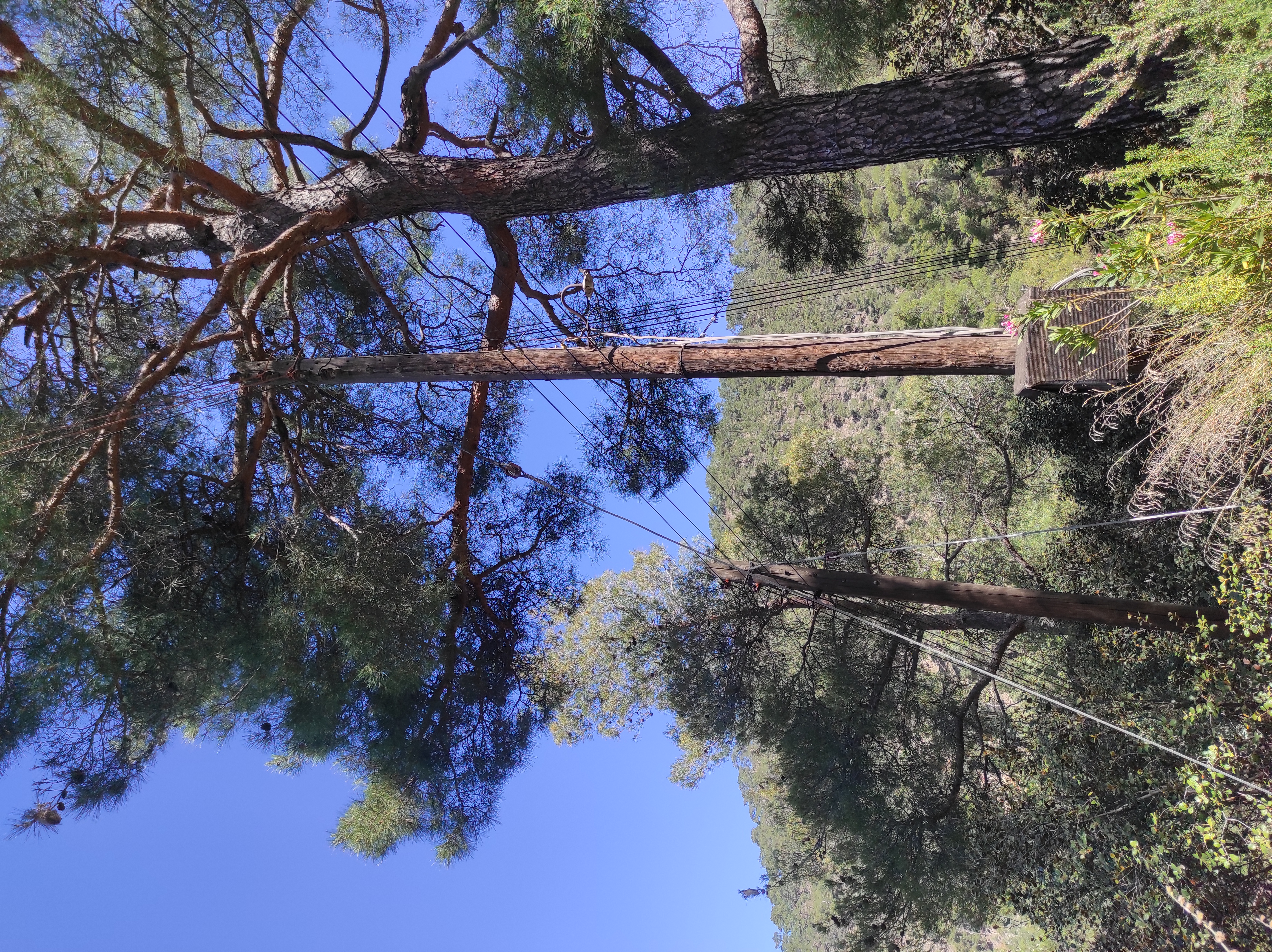
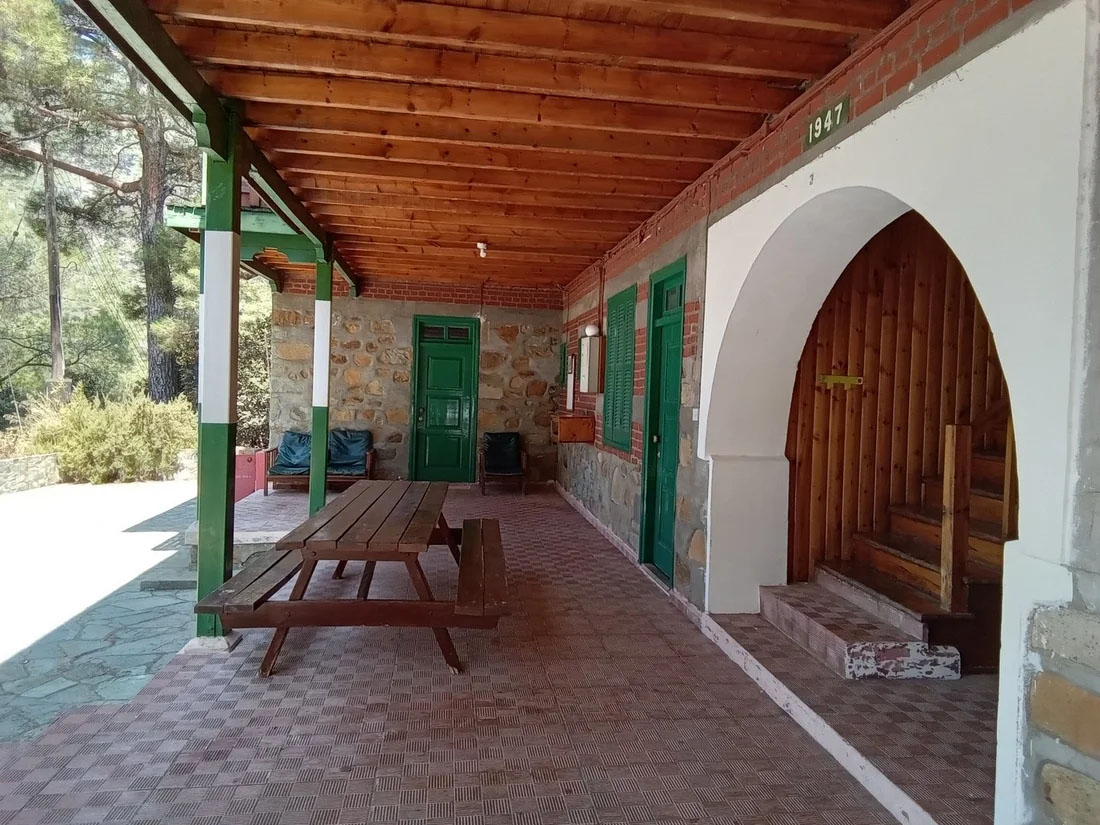
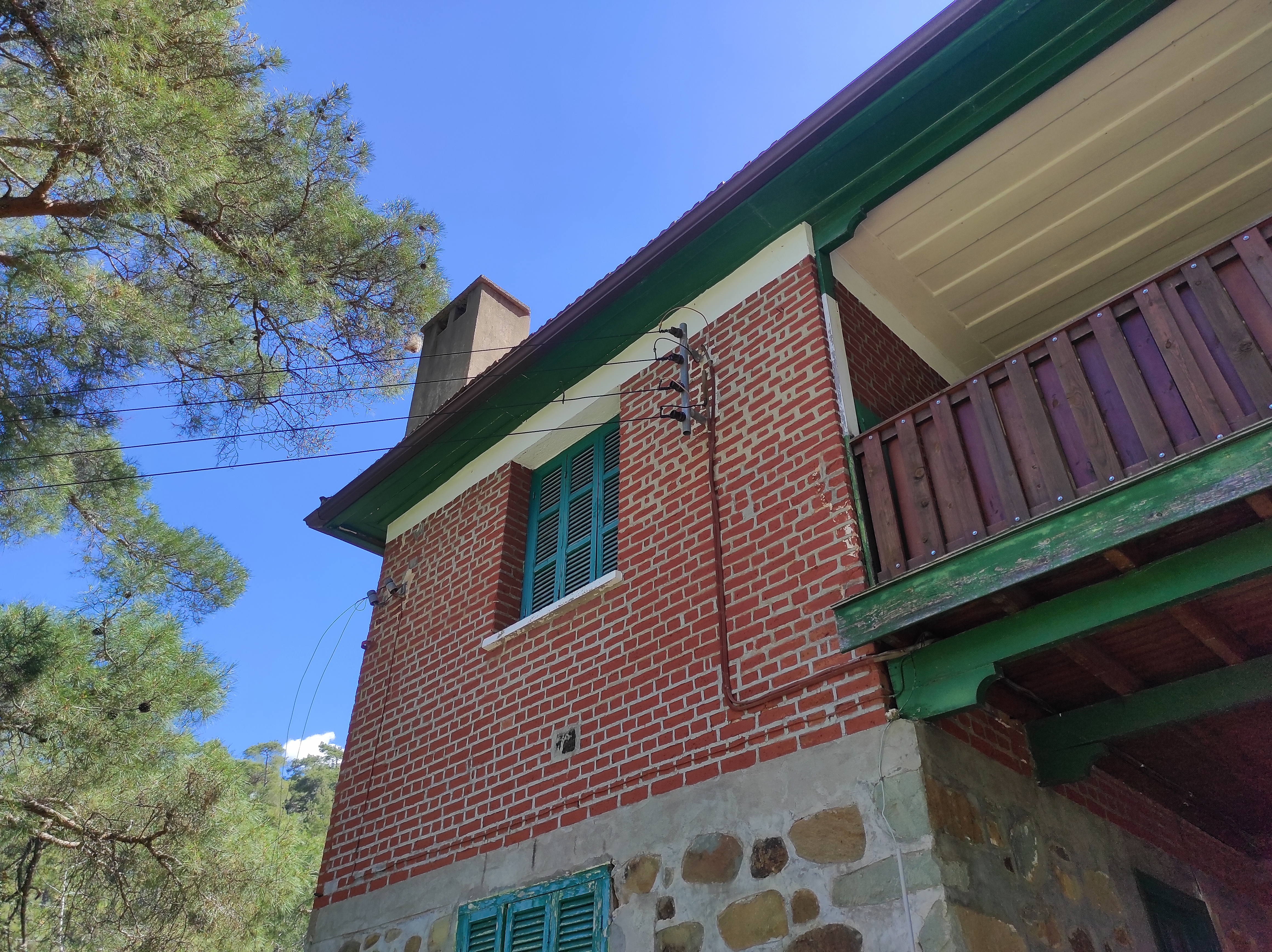
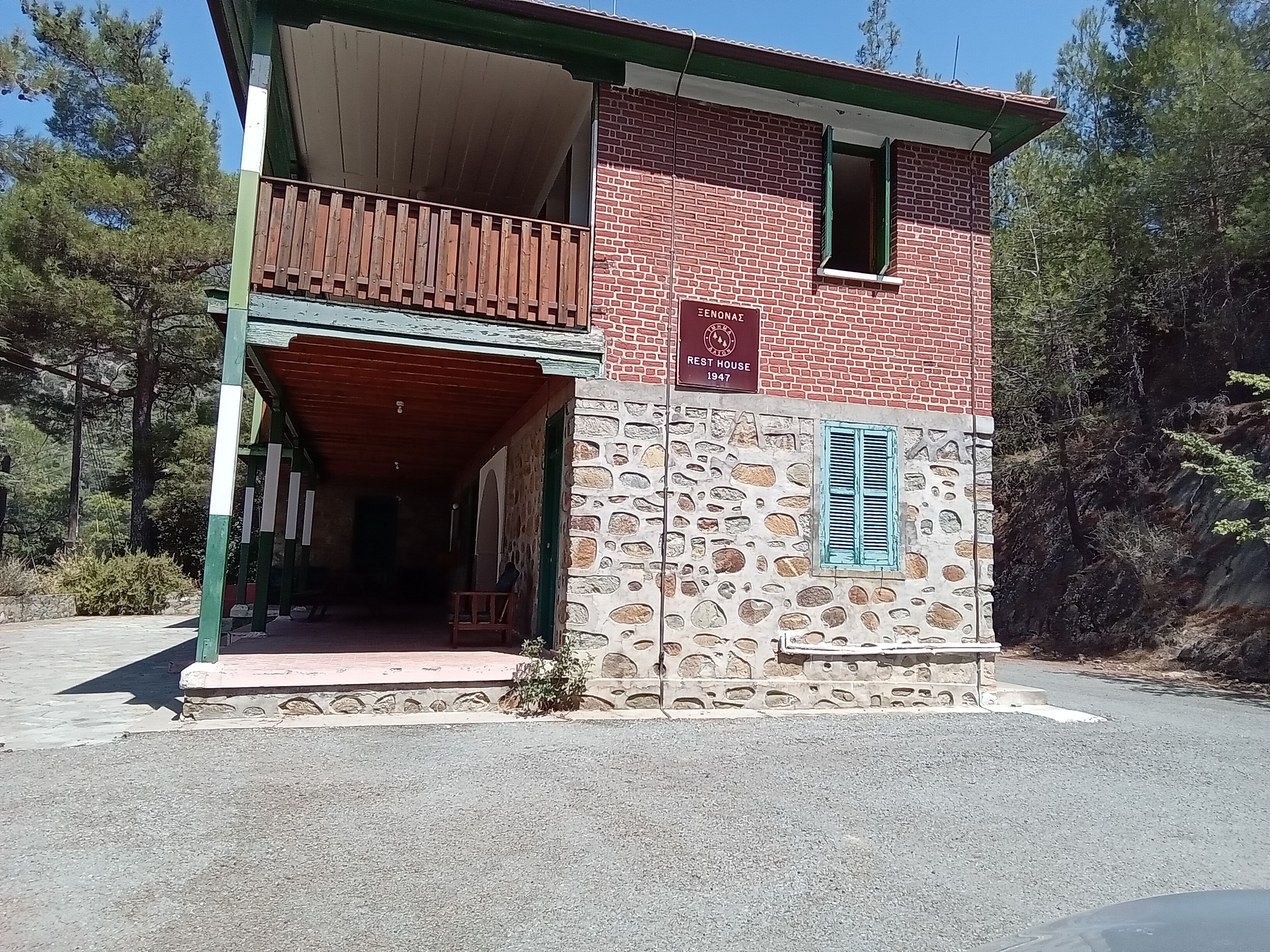
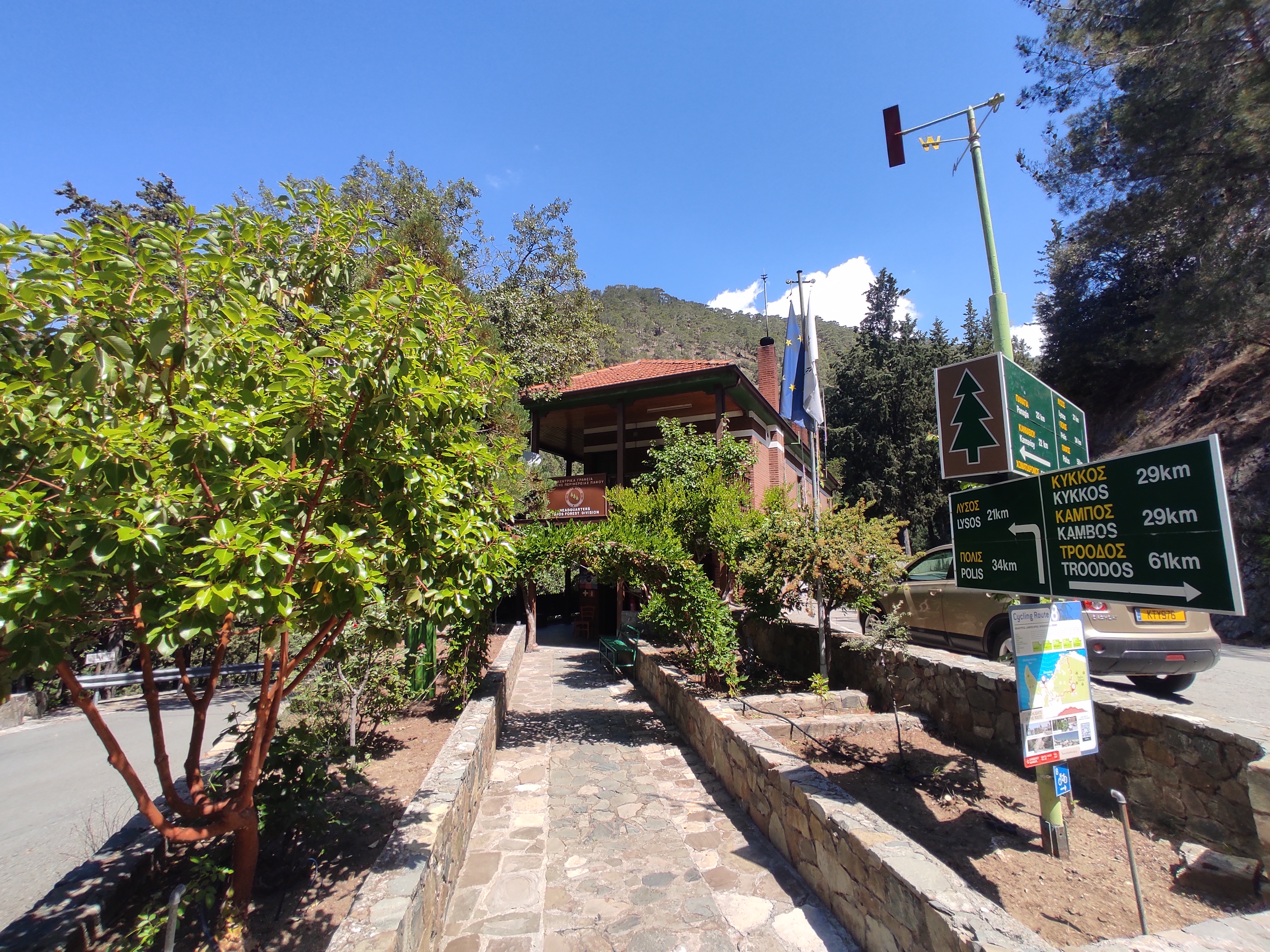
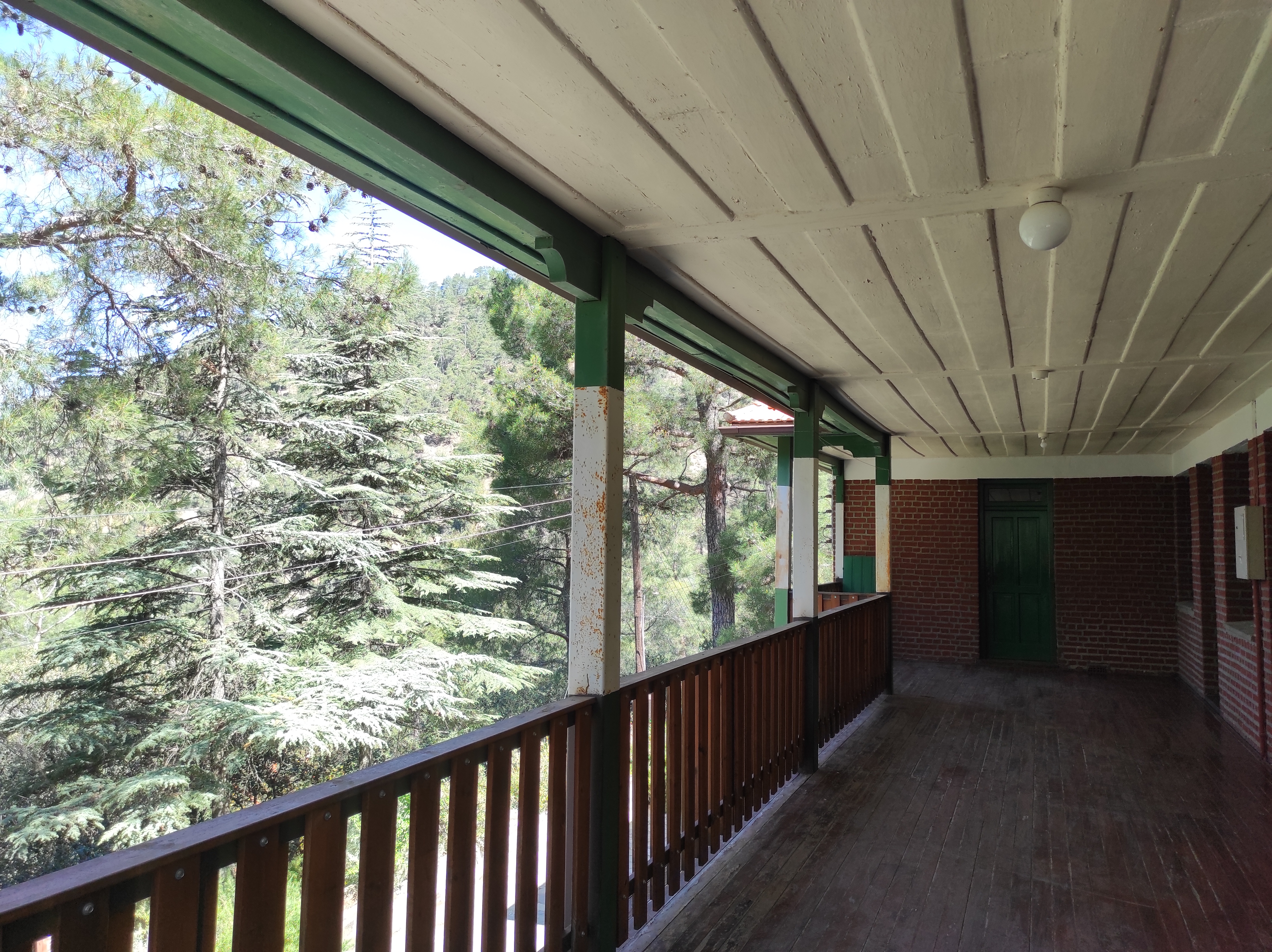
The decision has definitely been taken for the undergrounding solution, EAC rep Christina Papadopoulou later confirmed.
The EAC will undertake the costly project, burying 14km of cables along the main asphalted road up to Stavros tis Psokas, as well as installing a 200m section with new poles up to CyTA’s antennas at Horteri [peak], the spokeswoman detailed.
The over ten-month inaction comes from having to await the outcomes of an environmental study involving the activities of bird species, which could only be conducted during late spring. The study is due to be handed over to the environment department in June, according to the rep.
So, when will the purported upgrade materialise, with fire season already well upon us, as catastrophic fires in the Paphos region just this week proves? Earthworks are expected to start mid-October but may be interrupted due to weather conditions and resume later. The project may possibly see completion by September next year, Papadopoulou volunteered.
Meanwhile, an agriculture ministry official offered the Sunday Mail that “procedures had started” to evaluate the exact cost of the operation, which will likely be funded largely from that ministry’s coffers.
Neither the forestry department nor the agriculture ministry were in a position to confirm, despite repeated efforts, whether or not a feasibility study for an autonomous system has ever been conducted.
Environmetal and civil engineer, Savvas Vlachos who heads up the Cyprus Energy Agency, agreed that the cost of undergrounding cables was considerable, compared with installing an independent solar system and storage.
“But without a proper study I can’t say anything for certain,” he added. Potential obstacles for the latter could be that the particular forest station is situated in a glen, and it is not known if rooftop surface area would suffice given the amount of energy required by the station’s water pumps in an emergency.
It is unclear, at the time of writing, whether the station will continue to chug along operated by generators for another year and a half, though the ministry spokeswoman noted that “other options are being examined”.
Amongst the gloom, some good news. Last summer’s fires put Stavros tis Psokas’ ‘rest house’, where visitors are offered basic accommodation for a small fee, out of action. This summer the rest house, built by the British in 1947, has reopened for business, now powered by a generator from that era.
Driving back, it’s tempting to long for another era when forestry employees lived for weeks at a time in the small wooden huts still lining the mountain routes.
Employed as “master tailor to the forestry department” my grandfather has told me tales of overnighting at the various Paphos stations, taking meticulous measurements to sew the foresters’ (then) individually fitted uniforms.
Amid the plague of fires, bureaucratic delays, and other even less-palatable flaws the country must contend with, the words of a visitor, written almost 70 years ago, evoke that longing for a time when optimism and a clarity somehow apparently prevailed:
“A forester visiting the forests of Cyprus for the first time cannot fail to be impressed by what he observes […] Inside the forest he will travel on a network of well-constructed and clearly-signposted…roads along which at strategic points he will make the acquaintance of the Forestry Department’s own comprehensive telephone system […] On slopes which have been denuded by fire he will see the terracing… to establish a new crop. The first general impression is of an efficient and progressive Forest Department.” (Dr FC Hummel,1953).
Stavros tis Psokas ‘rest house’ can be booked by calling the forestry department offices at 99638197, 99640374.
Cost for adults is €12 per night and €7 euros for children up to 12 years old and younger children stay for free. Bring your own bedding.
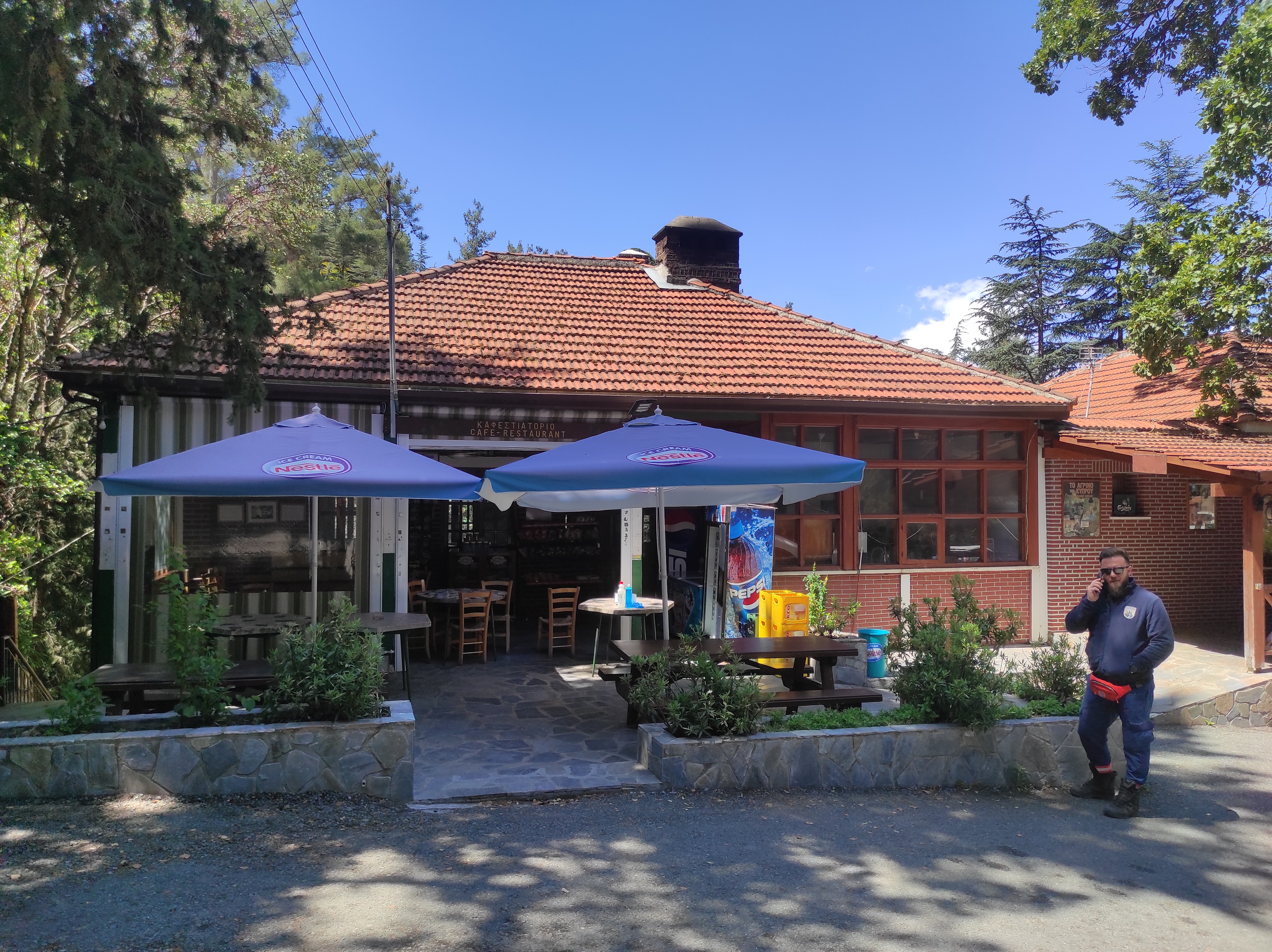





Click here to change your cookie preferences